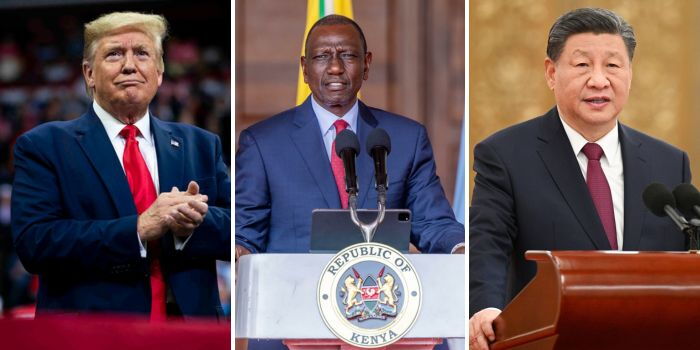Kenya Chooses to Support China Over Taiwan in Growing Global Tensions
Kenya has officially aligned itself with the People’s Republic of China in the ongoing global debate over Taiwan’s status, firmly rejecting any form of Taiwanese independence.
This decision comes as President William Ruto continues his four-day state visit to China, where the two countries are looking to strengthen their diplomatic and economic partnership.
During high-level discussions, Kenya expressed strong support for China’s “One China” policy. This policy states that there is only one legitimate China in the world and that Taiwan is a part of its territory.
The Chinese government sees reunifying with Taiwan as a crucial goal, and Kenya has now openly backed this stance.
In a joint statement released after bilateral talks, Kenya confirmed its recognition of the government of the People’s Republic of China as the only legitimate authority representing the whole of China.
The statement also emphasized Kenya’s firm opposition to any push for Taiwanese independence. Kenya added that it fully supports China’s efforts to achieve national unity.
This declaration places Kenya in a delicate position, especially considering its close ties with Western powers such as the United States, the European Union, and institutions like the World Bank.
These Western partners are heavily involved in Kenya’s economic development, social programs, and infrastructure projects.
While the United States also acknowledges the One China policy, it maintains a strong unofficial relationship with Taiwan, providing military and political support to the island.
This subtle but powerful backing of Taiwan by the US often puts countries like Kenya in a tricky position as they try to balance interests between two global superpowers.
Currently, the rivalry between the US and China is escalating. Tensions spiked during the presidency of Donald Trump, when he imposed major tariffs on Chinese imports as part of his aggressive “America First” strategy. In response, China introduced its own retaliatory tariffs, sparking a trade war that had ripple effects on economies around the world.
As a result, both developed and developing nations, including Kenya, have become increasingly vulnerable to the economic shocks caused by this ongoing conflict between Washington and Beijing.
At the same time, China has been growing rapidly both economically and militarily. With its increased influence, it has been putting more pressure on Taiwan to accept reunification with the mainland.
Taiwan, however, has continued to resist, with its leaders vowing to protect the island’s autonomy.
In early April, China carried out a powerful display of military force by conducting drills near Taiwan’s northern, southern, and eastern coasts.
This was meant as a stern warning to Taiwan’s leadership and its supporters abroad. China even went so far as to insult Taiwanese President Lai Ching-te, calling him a “parasite” in harsh criticism aimed at his government.
This wasn’t the first time China flexed its military might over Taiwan. In 2022, after then-US House Speaker Nancy Pelosi made a controversial visit to Taiwan, China responded with its largest military exercises around the island in recent history.
That move was seen as a direct message to both Taiwan and the US, underscoring China’s unwillingness to tolerate what it sees as foreign interference in its internal affairs.
Kenya’s latest stance on this matter signals a significant tilt towards China at a time when geopolitical tensions are rising.
It also highlights the tough balancing act many nations face as they navigate their relationships with two competing global giants, each with its own expectations and influence on the world stage.
Join Our Political Forum official 2025 WhatsApp Channel To Stay Updated On time https://whatsapp.com/channel/0029VaWT5gSGufImU8R0DO30


